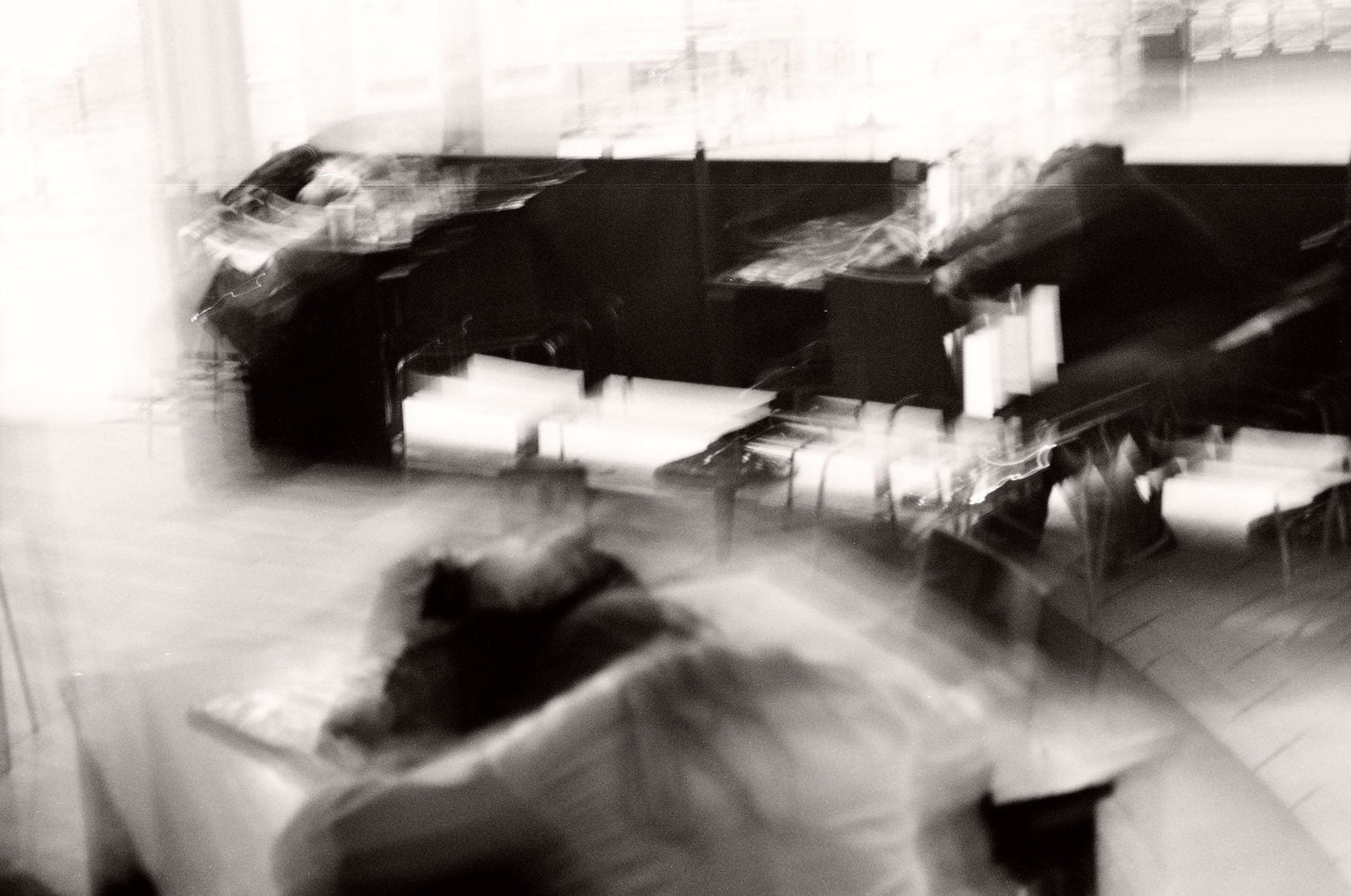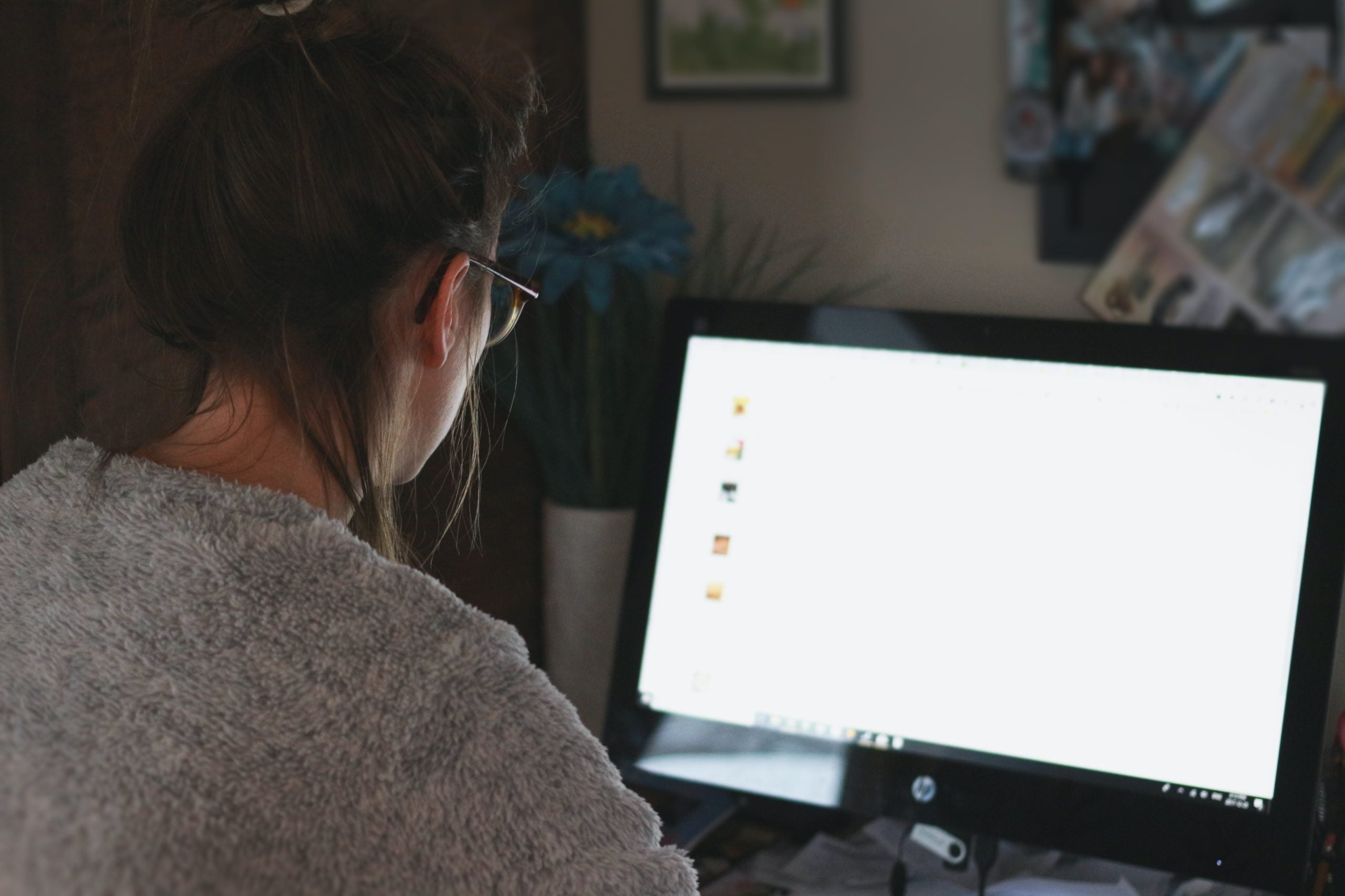From time to time, everyone has felt that sudden dizziness when standing up. Maybe you haven’t eaten in a while, or you’ve been lying down and didn’t take your time getting up. For people with photophobia and light sensitivity, dizziness can be brought on by bright light or certain types of light. And it’s not just occasional, but can be a daily battle.
The room spins. You feel unsteady on your feet. You aren’t sure which direction you’re looking. Adding dizziness and lightheadedness to your unique mix of symptoms makes photophobia even more of a hassle.
In this article, we’ll discuss where light sensitivity dizziness comes from. We’ll explore how and why it may affect you, and most importantly, what you can do about it.
Common Causes of Dizziness and Light Sensitivity
There is a pretty strong connection between light sensitivity and dizziness. Many people with light sensitivity also suffer from associated conditions like vestibular migraine, Meniere’s Disease, post-concussion syndrome, or symptoms stemming from a traumatic brain injury; all of which may bring on dizziness. Let’s take a look at each one of them.
Vertigo
Vertigo isn’t a medical condition of its own, but rather a symptom brought on by certain medical conditions. We’re covering it here because of its prevalence and association with light sensitivity dizziness.
Vertigo makes you feel like you or everything around you is spinning or in motion. Vertigo can be minor and feel more like a slight lightheadedness, or it can be so severe that you can hardly get out of bed. Contrary to popular belief, vertigo has no direct connection with heights.
Symptoms of vertigo vary from person to person, and may include:
- Trouble balancing
- Sensation of motion sickness
- Nausea and / or vomiting
- Nystagmus; an uncontrollable movement in the eyes
- Lightheadedness
- Ears feeling “full”
- Tinnitus, or ringing in the ear
- Headaches
Vertigo has several potential causes, including:
- Vestibular migraine — a migraine condition that carries an extremely high risk of light sensitivity symptoms, including dizziness. Vestibular migraine is also known as migraine-associated vertigo. We’ll discuss this in more detail later on.
- Vestibular neuritis — inflammation in the vestibular nerve, which may also cause severe nausea, blurry vision, or trouble balancing
- Labyrinthitis — inflammation in the inner ear labyrinth, caused by infection. This may also lead to hearing loss, ear pain, headaches, tinnitus, or changes in vision.
- Cholesteatoma — a benign skin growth in the middle ear which may develop after repeated infections. Its growth behind the eardrum may damage the bony structures of the ear and bring on dizziness and hearing loss.
- Meniere’s Disease — We’ll discuss this more completely in another section, but Meniere’s Disease causes fluid to build up in the inner ear. This can negatively impact balance, cause tinnitus, hearing loss, and more.

Post-Concussion Syndrome
If you’ve ever had a concussion or head injury, even without major trauma, you could be more sensitive to light sensitivity and associated dizziness. But there is more to post-concussion syndrome than this. Common symptoms of post-concussion syndrome are:
- Headaches
- Anxiety
- Irritability
- Insomnia
- Memory problems
- Trouble concentrating
- Tinnitus
- Dizziness
- Light sensitivity
Vestibular Migraine
Vestibular migraine is also known as migraine-associated vertigo. If you have vestibular migraine, you’re already familiar with the dizziness it causes and the light sensitivity that may come with it. In fact, over 90% of vestibular migraine sufferers report having adverse reactions to light during an episode.
Bright or flashing lights are common triggers for patients with vestibular migraine. So are fluorescent lights, bright sunlight or sun glare, and digital screens. When exposed to these and other types of bright light, people with vestibular migraine often feel dizzy or lightheaded along with the pain, nausea, and visual aura that often accompany a migraine attack.
Traumatic Brain Injury
Dizziness and light sensitivity often set in soon after a brain injury, but may also become a chronic problem. In fact, traumatic brain injury is one of the most common causes of these and other vestibular complications.
Researchers have discovered a connection between brain injuries, dizziness and light sensitivity. One study of teenage athletes revealed that, after a concussion, that watching TV or using a computer became triggers for dizziness. Other studies show that people who have suffered a concussion don’t tolerate bright light well, leaving them susceptible to light-triggered post-concussion or post-TBI symptoms at lighting levels others wouldn’t consider very bright.
Symptoms of traumatic brain injury can be extremely debilitating. Even mild to moderate brain injury can cause long-term or chronic dizziness, tinnitus, headache, confusion, cognitive difficulty, blurred vision and more.
Read about Karen’s experience after a traumatic brain injury and what has been most helpful to her in getting back to the things she loves.
Meniere’s Disease
As a vestibular condition, Meniere’s Disease is another leading cause of dizziness or vertigo. This disease is characterized by a chronic fluid buildup in the inner ear, which affects balance. Those who have Meniere’s Disease are 2x as likely to suffer from migraine, which often occurs with light sensitivity.
Meniere’s Disease symptoms can be brought on by intense lighting or certain visual environments, including:
- Lighting that is bright, flashing or flickering
- Fluorescent lighting in supermarkets or big-box stores
- Computer or television use
When exposed to these types of environments, people with Meniere’s Disease may experience severe vertigo.
Treating Light Sensitivity and Dizziness
Fortunately for those who deal with dizziness and light sensitivity, there are some proactive things you can do to reduce your symptoms.
Get a Diagnosis
If you’ve been feeling dizzy, the first thing to do is see your doctor for a proper diagnosis. Your dizziness could be related to light sensitivity or brought on by another vestibular condition. Your doctor can help you rule out anything serious. Knowing exactly what you’re dealing with will help you and your doctor create a plan to address it. There could be medications or therapies available to you.
Rehabilitation for Vestibular Conditions
Where appropriate, vestibular rehabilitation could help you reduce your dizziness and other symptoms. Your doctor will oversee your treatment with simple exercises designed to help with balance, dizziness brought on by motion, and visual complications. You may be referred to a neurologic physical therapist who specializes in neurological disorders.

Axon Optics With Avulux Lenses
For light sensitivity dizziness, one easy and non-invasive solution is to filter out the most troublesome types of light. If certain types of light (such as fluorescent, LED or digital screens) tend to aggravate your condition, blocking just those bothersome wavelengths could prove extremely helpful.
According to a 2016 study, there are specific light wavelengths which wreak the most havoc on light sensitive people. Specially-tinted lenses by Avulux®, available in Axon Optics glasses, are an effective way to filter out those wavelengths, mitigating the impact of light on your life. Often called migraine glasses, these lenses are designed to filter out only the specific types of light known to trigger symptoms, while allowing the rest in.
Don’t Hide in the Dark
When light bothers you, your first natural instinct might be to avoid light altogether by hibernating in a dark room, wearing sunglasses indoors, or only going out at night. While this might bring relief in the moment, unless you’re a bat or a bear, it’s not the right approach. This is because of a phenomenon called dark adaptation.
Staying in the dark or wearing sunglasses indoors can actually make your eyes so used to the dark that they’re even less able to cope with the light. Have you ever had someone turn on the light and wake you up? What about stepping out of an afternoon movie into the daylight? When you cope with your light sensitivity by staying in the dark, you are essentially training your eyes to love the dark even more — so even normal amounts of light seem extremely bright to you.
You don’t have to deal with your light sensitivity dizziness by giving up the best parts of your life. By consulting your doctor and taking some simple steps, you can reduce the effects of sensitivity to light on your daily life. What has helped you deal with your condition? Share your story in the comments below.
FAQs
Can bright lights cause dizziness?
Dizziness from bright lights can often occur in people with conditions such as vestibular migraine, vertigo, post-concussion syndrome, traumatic brain injury, or Meniere’s disease. These are conditions that are associated with light sensitivity, and have a common symptom of dizziness.
References
Beh SC, Masrour S, Smith SV, Friedman DI. The Spectrum of Vestibular Migraine: Clinical Features, Triggers, and Examination Findings. Headache. 2019 Feb 8. doi: 10.1111/head.13484.
Reneker JC, Cheruvu V, Yang J, et al. Differential diagnosis of dizziness after a sports-related concussion based on descriptors and triggers: an observational study. Inj Epidemiol. 2015;2(1):22. doi:10.1186/s40621-015-0055-2
Bohnen N, Twijnstra A, Wijnen G, Jolles J. Tolerance for light and sound of patients with persistent post-concussional symptoms 6 months after mild head injury. J Neurol. 1991 Dec;238(8):443-6.
Waddell PA, Gronwall DM. Sensitivity to light and sound following minor head injury. Acta Neurol Scand. 1984 May;69(5):270-6.
Katz BJ, Degree KB. Diagnosis, pathophysiology, and treatment of photophobia. Survey of Ophthalmology. 2016 Feb 11. Doi: 10.1016/j.survophthal.2016.02.001





